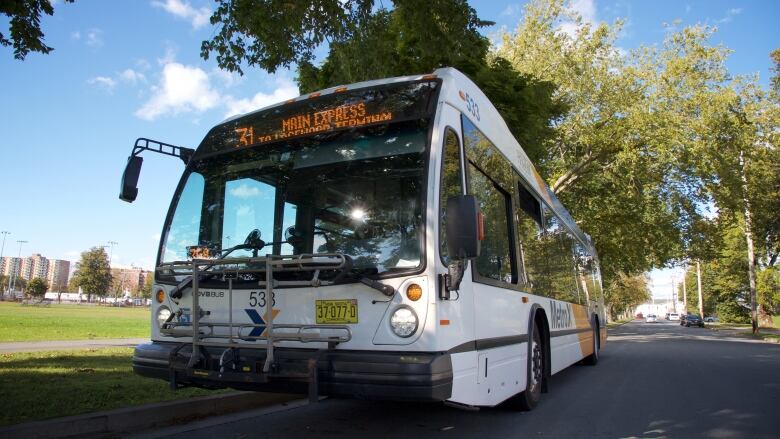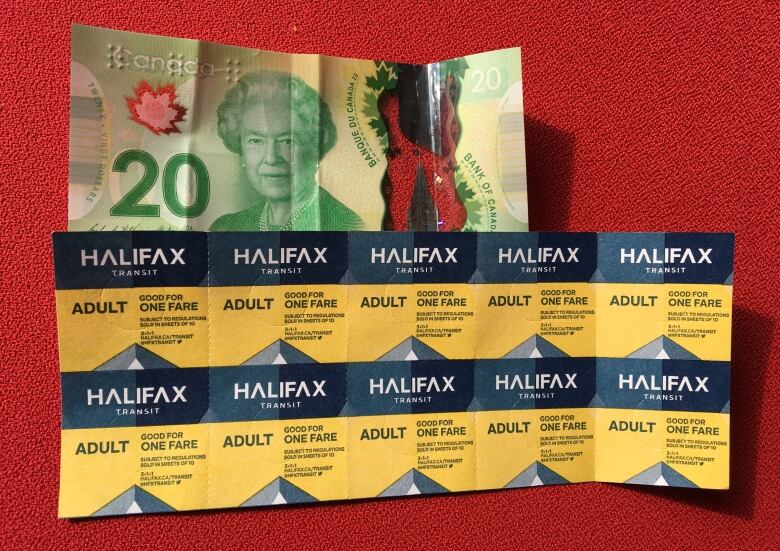Halifax Transit's plan to revamp fare collection stalled by ticket delays
Sources claim there's a dispute between city and ticket manufacturer, but both deny any problems

The introduction of Halifax's supersized transit tickets, originally planned for the end of 2018 or earlier this year, is facing significant delays, hampering efforts to revamp fare collection systems on citybuses and ferries.
Three people briefed on the matter have told CBC News there's a problem with what has been supplied by the Langley, B.C.-based manufacturer chosen by the city a year agoto design and print millions of tickets, a three-year contract worth up to $1 million.
The company, Canada Ticket Inc., and city officials deny there's any issue with the tickets.
"The design and planning phase of the new fare management system is taking longer than originally anticipated,"municipal spokesperson Erin DiCarlosaid in an email. She refused to elaborate.
If things had progressedas planned, bus and ferry riders would already be using the new tickets, which are the size of $20 bills and are intended to haveenhanced security features,including infrared ink, to reduce the likelihood of fraud.
Last year, city officials said the tickets were needed as part of a plan to replace fare boxes with updated models that could eventually be modified to accept smart cards, debit or credit cards, or mobile apps.

Sources, who were granted anonymity because they were not permitted to speak publicly about the delays,claim there's some sort of issue with the ticketscreated by Canada Ticket.
According to one source, the problem came to light during testing and the company has not yet been able to resolve the issue to the satisfaction of transit officials.
The plan had been to introduce new fare boxes within months of launching the new tickets.Without the tickets, the rollout of the new fare collection system is stalled.
Steve Wengrowich, vice-president of sales and marketing at Canada Ticket, flat out denied there was any problem with what his company provided the city.
"The information you have been provided regarding Canada Ticket is actually incorrect," he said in an email toCBC News.
"There has been no discussion between HRM & Canada Ticket regarding 'issues with tickets' or terminating our contract with HRM," he wrote.
Only bidder
Canada Ticket Inc. was the only company to respond to the city's call for bids in the fall of 2018. According to tender documents, the three-year contract could be worth as much as $1 million, depending on how many tickets Halifax Transit ordered.
Transit officialsoriginally estimated it would need 400,000 sheets of adult tickets a year, and another 60,000 sheets for senior and children's tickets. Each sheet would hold 10 tickets.
The "infrared transit tickets" were supposed to include a visible barcodeas well as one that could be scanned, individual ticket numbers and be printed using "coin reactive security ink."
According to Canada Ticket's webpage, the companyspecializes in designing and printing parking and transit tickets, as well asbus passes and labels.
Halifax Transit has already spent approximately $18,000 on 1,000 "sample tickets,"according to DiCarlo.
The new fare system is needed, according to Halifax Transit, because "existing fare boxes have reached the end of their useful life."
The supersized tickets are supposed to be the first phase toward the use of"smart technology" such as tap cards or smartphone payments, which are already widely used in cities around the world.












_(720p).jpg)


 OFFICIAL HD MUSIC VIDEO.jpg)
.jpg)



























































































